On this page:
What is bookkeepers insurance?
Business insurance helps bookkeepers protect their growing businesses. Depending on the cover you choose, it could help you manage costs for claims for errors in your work, cyberattacks, and legal expenses.
Incorrect advice, accidental property damage, cyberattacks—the potential troubles for a busy bookkeeper are endless.
Situations like these (and many others) could create unplanned expenses for your business. If paying these bills would blow out your budget, it may be time to consider business insurance.


Why might bookkeepers need insurance?
You may be required to have business insurance to do things like:
Join a professional association.
Lease office space.
Pay legal costs if you face a claim.

What does your business do?
Search your occupation, compare cover, and buy online in minutes.
Save time & money by buying online in minutes.
Types of cover we offer bookkeepers
Unsure what types of business insurance to get?
Here’s what other bookkeepers professionals tend to choose:
Popular cover types for bookkeepers:
Bookkeepers could also consider:
Other Covers
Cyber Liability insurance
Covers your business from legal costs and expenses caused by cybercrime incidents such as:
- Data breaches
- Extortion
- Forensic investigation
- Business interruption
Statutory Liability Insurance
Covers you for an unintentional breach of key NZ business legislation, including:
- Legal and defence costs
- Fines and penalties
How much does bookkeepers insurance cost?
Your small business is unique. That means you might face different risks than other businesses and may pay a different price for your cover.
With BizCover, insurance can be tailored to fit the size, risks, and needs of your business.
The prices are real, get that new policy feel
Professional Indemnity
$39.70/mo*
Expected average cost
Public Liability
$22.64/mo*
Expected average cost
How is the cost of insurance calculated?
Risks of the industry
Cover level amount
Annual turnover
Number of employees
Claims history
*Customer Average Monthly Payment Report is based on 1 July 2023 to 30 June 2024 and presented as a guide only. It may not reflect pricing for your particular business, as individual criteria will apply
Get cover that works with the risks of your business
Select different cover amounts for each policy listed below.
This is the most you will be paid out if you need to make a claim.
Unsure how much to choose? Think about:
Underinsurance
We know it’s tempting to select a lower level of cover to reduce premiums, but this can leave businesses shocked and insufficiently covered when making a claim.
Ways underinsurance catches business owners out:
Inflation
With inflation, the cost of living and doing business increases. Remember to cover you, your tools and assets for the rising costs of replacing or covering them, not what you paid for them – you may be surprised at the difference.
Not covering the full cost of your risks
If you select cover levels for less than the value you may be found liable – left out of pocket when it comes to claims time. It’s important to review your risks and determine how much you will need to cover any claim that may come your way.
Professional Indemnity
$39.70/mo*
Expected average cost small businesses to pay
Public Liability
$22.64/mo*
Expected average cost small businesses to pay
Factors influencing cost
Your Industry
Required Coverage
Your Turnover
Number of Emplyees
Claims History
Click here to check industry wise average prices
*Customer Average Monthly Payment Report is based on 1 July 2023 to 30 June 2024 and presented as a guide only. It may not reflect pricing for your particular business, as individual criteria will apply.
Get cover that works with the risks of your business
You can select from 5 different levels of cover.
This is the most you will be paid out if you need to make a claim. Choosing different cover levels may impact the cost of your policy.
Unsure how much to choose? Think about:
Statutory professional requirements
Cover required by contracts
Number of employees being covered
Your contract value
Worst case scenario claim size
Underinsurance
We know it’s tempting to select a lower level of cover to reduce premiums, but this can leave businesses shocked and insufficiently covered when making a claim.
Ways underinsurance catches business owners out:
Inflation
With inflation, the cost of living and doing business increases. Remember to cover you, your tools and assets for the rising costs of replacing or covering them, not what you paid for them – you may be surprised at the difference.
Not covering the full cost of your risks
If you select cover levels for less than the value you may be found liable – left out of pocket when it comes to claims time. It’s important to review your risks and determine how much you will need to cover any claim that may come your way.
How it works – buying online
5 easy steps to get instant cover online today.

Select Profession
Pick Your Covers
Add Business Details
Compare Quotes
Get Covered Online
Search your
Occupation
Choose your
Cover(s)
Enter Business
Details
Compare
Quotes
Get Covered
Today


How it works – making a claim
We’ll assist you through the claims process & manage your claim directly with the insurer.

Let us know Fill out our claims form and provide info to support the claim
Receive extra support We will assist you with your claim
Claim results We will notify you of the claim outcome.
Let us know Fill out our claims form and provide info to spport the claim
Receive extra support We will assist you with your claim
Claims results We will notify you of the claim outcome


Our Insurers
We work with a selected group of trusted NZ insurers to offer you great cover.
The savings are real
See how much others have saved while purchasing policy through Bizcover
^ Savings made from January 2023 to July 2024. This information is provided as a guide only and may not reflect pricing for your particular business, as individual underwriting criteria will apply.

What sets BizCover apart?
We are not just a comparison and buy site.
Make Claims Online
We’ll manage the process on your behalf with the insurers.
Flexi Payment Options
Pay monthly or annually, cancel at any time.
One Stop Shop
Manage multiple cover types in one place.
Easy Renewals
Optional automatic renewal to stay protected.
Frequently asked questions
No two bookkeeping businesses are the exact same, and neither are two insurance policies for bookkeepers. The pricing will depend on a variety of factors that are unique to your bookkeeping business.
Some of these may include:
- The size of your business
- How many staff you have?
- The type of food business you are running
- The type of coverage you take out
- Your excess
- The level of cover
- Your claims history
- Location of your business
To receive an accurate idea of how much business insurance will cost for your hairdressing business click here to get a quote or have a chat to our friendly team.
As a bookkeeper, business insurance may be a requirement in certain situations like becoming a member of an industry body or as a condition of a contract that you may work on. It is always wise to check what type of cover and the amount you are required to have in place.









